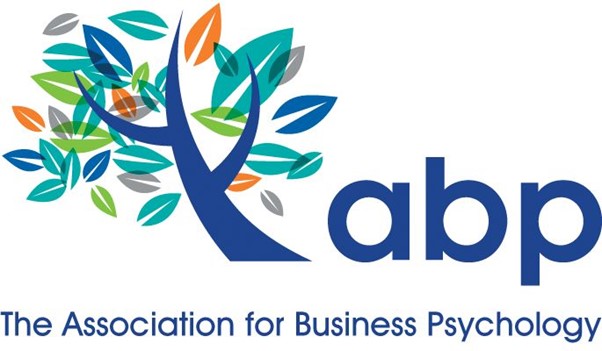Article based on webinar delivered October 2024 Author: Dr Rainer Kurz, Chief Psychologist, HUCAMA Analytics Ltd My 2024 Conference season was intensive preparing a dozen papers across 5 events including one at the ABP Conference in Denham. The enthusiastic folks at the ABP encouraged us…

This is a new event, launched by the ABP and led by Dr Dawn H. Nicholson, Vice Chair and Head of University Accreditation.
At the ABP, we’re passionate about sharing cutting-edge research from the brightest emerging talent in our field and our new MSc Grad Dissertation Symposium featured five exceptional MSc students and graduates, who each presented their latest research in 10-minute sessions, followed by a dynamic 25-minute Q&A facilitated by Dr Dawn H. Nicholson.
The presenters at this inaugural event were:
- Alice Rogers (Nottingham Trent University): Achieving work-life balance: How hybrid workers manage the separation between personal and professional life.
- Vaida Virsilaite-Nickolaou (University of East London): Empathy in leadership: The impact of leaders’ work arrangements (remote vs hybrid) on their empathy levels.
- Caroline Macdonald (University of Sussex): Early Career Professionals (ECP): How hybrid and remote work is transforming the experiences of ECPs.
- Jade Olivo (City University): Wellbeing and after-hours communication: Insights into how after-hours workplace communication affects mental health.
- Radha Verma (LSE): Technostress in India: The effects of technostress on hybrid workers in India and how it impacts their wellbeing.
The Q&A was fast-paced with questions coming thick and fast from an audience of practitioners, academics and fellow students. Questions included:
- Should individual employees be encouraged to craft their own hybrid working rules. How could this be made to work best in organisations? Alice responded that the organisational environment needed to send a clear that they favoured flexibility – so getting the work culture right first was key. Manager training was also important to educate managers into how increasing work-life balance could lead to productivity increases.
- Whether there was any research examining ROI data on leader empathy? Vaida responded that around 70% of employees reported higher productivity when the leader showed more empathy.
- Could online /remote working actually be more advantageous to Early Career Professionals (ECP), by enabling them to build their profile more easily? Caroline responded that managers could played a big role by offering more opportunities for remote networking and interactions, although they needed to be sensitive to the fact that ECP still needed to be guided towards the right internal contacts and connections as they began their networking.
- What were the views on the upcoming ‘right to switch off’ legislation envisaged by the Government. Jade responded by indicating she supported this and any initiatives that gave workers the choice as to whether or not they wanted to engage out of hours.
- What was the theory of ‘techno-stress? Radha responded that this was a theory combining social and technical systems. It refer to the stress associated with the use of technologies and their impact on employees at the psychological level. In addition, with the increasing implementation and use of AI, it also extends to ‘techno-insecurity’, which is worker fear of losing their jobs to AI.
You can find the link to the webinar here: https://youtu.be/CBGydav3x5Q
Dr Dawn H. Nicholson, Vice Chair and Head of University Accreditation commented; “This was a terrific opportunity to profile emerging business psych. talent and their cutting edge research, which is a big part of our Guardianship & Growth Agenda. The ABP is proud to be working with, and nurturing, emerging talent in our field and showcasing the brilliant work that they are doing, as these dissertations evidence. The MSc Grad Symposium is definitely one to be repeated!”



